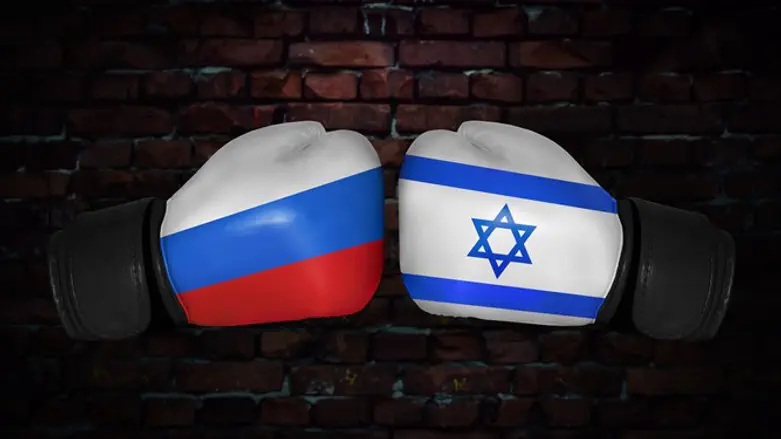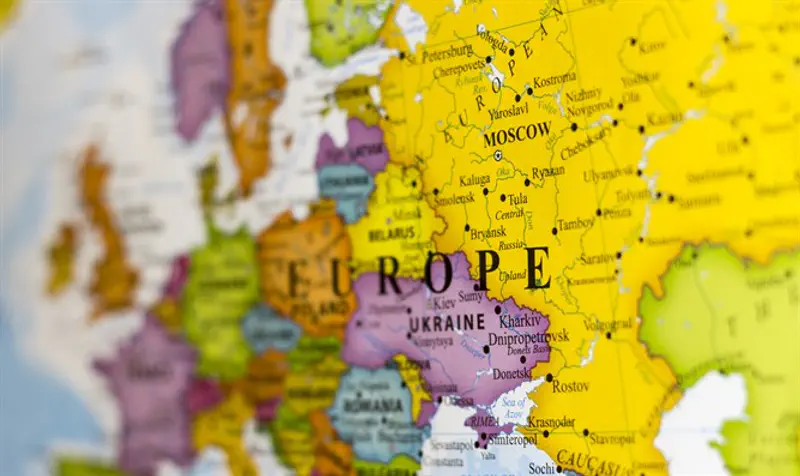
Russia reacted seriously to yesterday's Knesset bill to recognize the Ukrainian genocide in the 1930's advanced by Druze MK Akram Hasson (Kulanu) and marking the Holodomor ("to kill by starvation"), the mass famine in Ukraine between 1932-3 in which millions were killed. The Russian Embassy reacted by saying the bill "sadly distorts history".
Meanwhile, the Russians are applying additional pressure on the media. Yesterday, Russian Deputy Ambassador to Israel Leonid Frolov spoke with Galei Tzahal's Michael Hauser Tov. Frolov was asked whether this law intensifies sensitivities while security coordination between Jerusalem and Moscow regarding Iran and Syria is at its peak.
Frolov said: "This is not a good time to discuss such a proposal. This is a very important time for all the world and now, when Mr. Trump declared Jerusalem as the capital, Israel needs the support not only of the United States; Israel needs the support of many other countries, who think in a different way."
The Ukrainian wholesale murder in the 1930s perpetrated by Stalin is an upsetting issue for the Russians. According to Hasson's proposal, the State of Israel will officially recognize the Ukrainian genocide, and even hold a memorial day and ceremony on the subject.
Russia claims it was natural disaster that caused the terrible hunger, and not, as they say in Ukraine, a deliberate action of the Soviet Union against them. Moscow over the years has exerted heavy pressure on many countries, including Israel, not to recognize the genocide.

However, the new bill states that "there is no reason why the Knesset should not recognize it as such," and that "this is the most serious humanitarian disaster other than the Holocaust." MK Hasson is aware of the sensitivities but insists on advancing the law. Hasson's office said that he decided to submit the bill following a visit with a delegation of Knesset members in the Ukraine a few weeks ago.
Former Ukrainian President Viktor Yushchenko said during a speech in the Knesset in November 2017 that "the moral support and the State of Israel's solidarity with the victims of totalitarian terror against the Ukrainian people in 1932 and 1933 are very important to us. I want to emphasize that among the Ukrainian nation, so many people died of starvation that in those years we lost perhaps more than we lost during World War II."
Even though the law is only in its infancy and it is not certain whether it will be promoted, Moscow is already angry at Israel. A source in the Russian Foreign Ministry says: "If the law is promoted we will respond sharply. It will have far-reaching implications for the relationship between Russia and Israel."
The Russian Embassy in Israel also said: "This is a cynical, speculative claim about the memory of millions of victims for political reasons. It is regrettable that our friends in the Knesset prepared a bill that distorted history. We call on all relevant elements in Israel to study historical facts more accurately."
This morning several representatives from the Russian embassy in Israel will arrive for meetings with Knesset officials in an attempt to thwart the bill even before it comes up.
Asked by Hauser Tov whether the law, if advanced, could really harm relations between Israel and Russia, Deputy Ambassador Frolov replied, "We'll find a way how to solve differences between our peoples and countries. It will be bad; it will be a wrong step, but relations between countries is much more important."
The Deputy Russian Ambassador also referred to the Polish Holocaust Law and took a swipe at Israel: "Poland now wants to delete some pages of history ... on Israel's part, this proposal [on the Ukraine] also is to rewrite history, like in the Polish case."